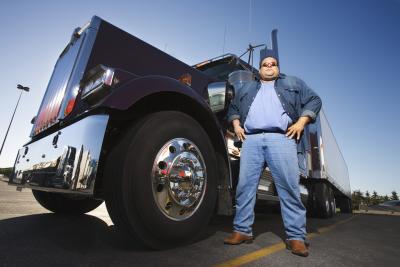
Driving a commercial vehicle requires special training and knowledge. Each state has varying requirements for individuals to obtain a commercial driver’s license (CDL). The federal government also has specific laws and regulations for the minimum requirements that must be met to obtain a CDL. Since April 1, 1992, drivers have been required to have a CDL when operating a commercial vehicle.
Most states require individuals to be at least 21 years old before applying for a CDL. Some states will issue CDL's to individuals between 18 and 20, but they are not permitted to drive a commercial vehicle outside of the state in which they are licensed until they turn 21. CDL applicants must be able to read and speak English to make report entries, communicate with the public and officials, and understand traffic signs. Applicants must also be physically capable of operating a commercial vehicle. This means that they must not be missing or have an injury to a limb, or a condition, such as epilepsy, that would prevent them from operating the vehicle safety.
States administer their own knowledge and skills tests that must at least meet the federal difficulty standards. The general knowledge test must contain at least 30 questions and applicants must get at least 80 percent of them correct to pass the test. Applicants must perform the skills test in the type of vehicle they intend to operate. The skills test must contain certain skills including brake operation, driving forward and backward, and basic safe driving skills such as speed control, turning and using signals appropriately.
Certain things disqualify a person from obtaining a CDL, or cause them to lose commercial vehicle driving privileges for anywhere from 60 days to life. Disqualifications include two or more serious traffic violations in a three-year period, driving under the influence of alcohol or drugs, leaving the scene of an accident and convictions while driving a commercial vehicle. States have the ability to reduce some lifetime disqualifications to 10 years if the driver completes a state-approved driver rehabilitation program.
Active duty military drivers do not have to complete CDL requirements in order to operate a commercial vehicle legally. States can waive CDL requirements for firefighters, ambulance drivers, farmers and snowplow or salt truck drivers in rural areas in certain cases. States can issue restricted CDL's and waive the knowledge and skills tests for seasonal farm drivers and drivers in remote areas of Alaska.